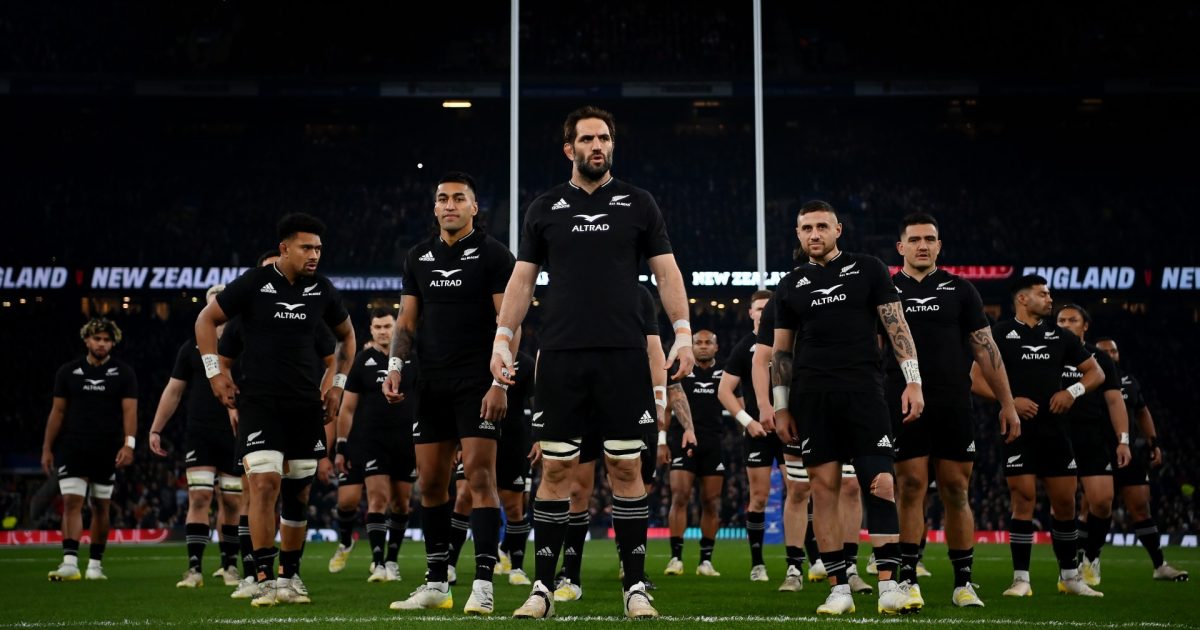Whitelock reflects on the ABs' 'interesting' 2022

For a team who’s expected to win every time they take the field, the start of last year’s international campaign was nothing short of disastrous for the mighty All Blacks.
The All Blacks have always been in the top echelon of teams in international rugby, and were recently coming off an unprecedented decade of dominance.
After ending their 24-year World Cup drought on home soil in 2011, the All Blacks famously became the first nation to go back-to-back four years later.
But, and to set the scene even further, the men in black had held the world’s No. 1 men’s ranking from 2009 to 2019.
Unparalleled success in any sport.
But disaster struck after the 2019 Rugby World Cup, where they were knocked out of the tournament by traditional rivals England in a hard-fought semi-final.
Other nations continued to improve while the All Blacks appeared stagnate, unable to revolutionise their game beyond their incredibly skilful style of play.
After finishing their end-of-season tour with consecutive losses to Ireland and France in 2021, the All Blacks looked to bounce back against the world’s top ranked side in a three-match series the year after.
Ireland had never beaten the All Blacks in New Zealand, and faltered under the pressure and expectation in a emphatic loss at Eden Park.
But the Irish had more than just luck on their side in the following two matches, as they dominated the All Blacks to record an historic series win in Aotearoa.
A new low for the All Blacks.
But the worst was yet to come for New Zealand, who visited South Africa for two Rugby Championship tests against reigning World Cup champions the Springboks.
Once again, they were swept off the park in the first of these matches – their third loss in four matches to start the year, and fifth in their last sixth tests.
Speaking about the difficulties of last season, lock Sam Whitelock has given an interesting insight into the mindset of the All Blacks’ players; they only focus on what they can control, and most of the time that means going back to the basics.
“We’ve had an interesting year,” Whitelock said. “It’s been up and down. We’ve had some really good performances, we’ve had some parts of games where we’ve been really good,” Whitelock said on The Good, The Bad & The Rugby.
“Other parts (where) we’ve been less than average, our last nine minutes (against England) is a prime example of that.
“If I look at it now, it’s actually the same as what it was five years ago, 10 years ago. Any team can beat any team, and it doesn’t matter who or who or where.
“It’s actually you working out, ‘alright, what do I have to do right now?’ And that’s something that we talked about as a team and myself individually.
“So for me, ‘okay, work ethic, physicality’, all those things.
“Everything else is extra noise… it’s actually just doing your job. I know that sounds really simple and basic.
“I think of all the great teams in the past, they actually do the simple things really, really well. They just do their job.
“It’s actually a really simple game when you look at it and sometimes we probably overcomplicate it.”
After making his international with two tries off the bench in 2011, Whitelock was part of the All Blacks squad who ended New Zealand’s 24 years of pain at Rugby World Cups.
The All Blacks had been the favourites at practically every World Cup since 1987, or at least in the conversation, yet had collapsed under the weight of a nation.
Pressure is an incredibly powerful factor in sport.
But for a rugby-mad nation at the bottom of the world, the 2011 tournament in New Zealand was a defining moment in time.
This was it.
The pressure was on and clearly the players knew that, but Whitelock was given an interesting piece of advice which has served him and others well throughout their test careers.
“The easiest way to sum it up is what can you control? You can’t control social media, the comments, the scrolling. That’s people’s opinions,”
“The best advice I got given, and it was in 2011 when the pressure was on because everyone was using the whole ‘hey look, you haven’t won it for 24 years, what happens if you lose at home, will you ever win it?’ We just turned it around and said ‘what if we do?’
“We just took whatever their comments were and tried to turn it into a positive. From that, the conversation flowed… the paper was just writing everything they wanted and everyone said ‘don’t read the paper.’
“That’s obviously harder to do now with social media, phones internet, it’s everywhere… just don’t’ go on it, don’t follow those shows or those people that are really opinionated. Just get away from it.
“That’s what I did and that’s what a number of the players have done.
“It’s going ‘is this extra noise, is this an emotional piece or is this actually going to help me be better?’
“Easier said than done because in New Zealand, it is a fishbowl. If you walk down the street, if you ask the 10 people there they would all have a different opinion on who’s playing well, who should be the starting 15, etcetera.
“It’s actually saying to some of those people ‘hey, thanks for your help but I’ve just got to worry about myself’ and go from there.”


































































